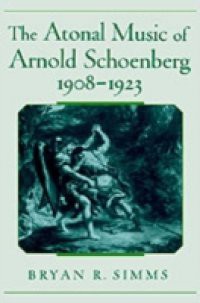Between 1908 and 1923, Arnold Schoenberg began writing music that went against many of the accepted concepts and practices of this art. Largely following his intuition during these years, he composed some of the masterpieces of the modern repertoire--including Pierrot lunaire and Erwartung--works that have since provoked a large, though fragmented, body of critical and analytical writing. In this book, Bryan Simms combines a historical study with a close analytical reading of the music to give us a new and richer understanding of Schoenberg's seminal work during this period.

